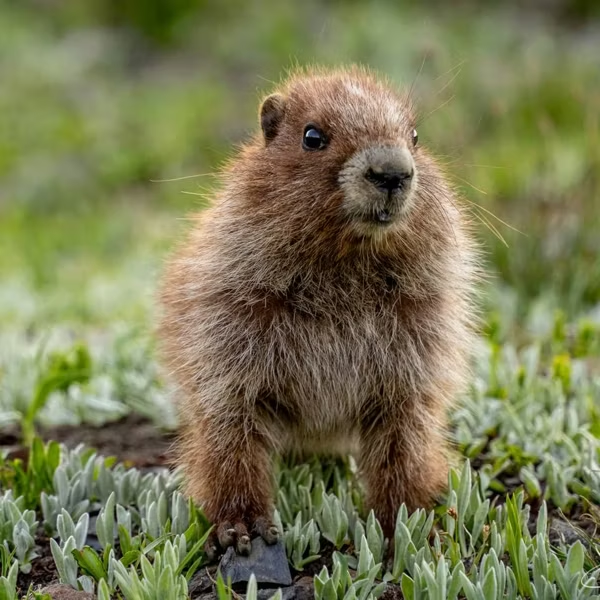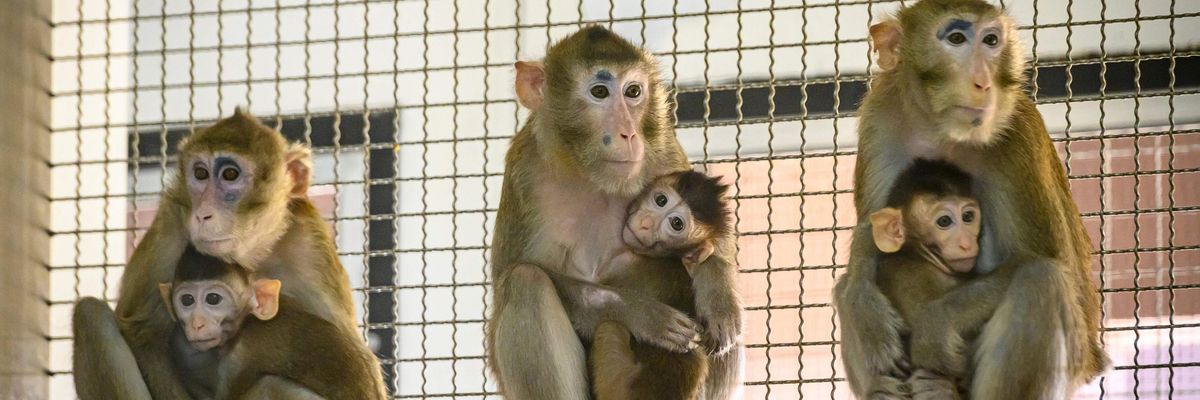Hundreds of scientists, doctors, and academics from around the world—including renowned primatologist Jane Goodall—on Wednesday urged the U.S. National Institutes of Health to review and ultimately end funding for "cruel experiments" on non-human primates at Harvard University.
In a letter led by Harvard Law School's Animal Law & Policy Clinic and the Wild Minds Lab at the University of St. Andrews School of Psychology and Neuroscience in the United Kingdom, 380 signatories urge senior National Institutes of Health officials to "review the protocols and justifications" related to the "funding of unethical experiments on macaque monkeys and other non-human primates taking place at Harvard Medical School."
As the letter details:
An NIH-funded Harvard Medical School lab run by neurobiologist Dr. Margaret S. Livingstone has used infant macaque monkeys to study visual recognition by depriving them of the ability to see faces, either by sewing their eyes shut or by requiring staff to wear welders’ masks around them. In some cases, the lab implants electrode arrays into the monkeys' brains.
By design, these experiments require maternal deprivation—a fact that drew the ire of scientists last fall, when Proceedings of the National Academy of Sciences (PNAS) published an Inaugural Article by Dr. Livingstone entitled Triggers for Mother Love. The article describes the lab's practice of taking infant macaques from their mothers shortly after birth and attempting to appease the mothers' distress by giving them plush toys as "surrogate infants."
"As a primatologist with decades of experience in the field, I can say with complete confidence that we know that infant primates and their mothers suffer greatly when they are separated. We also know that depriving infants of the ability to see faces will have adverse impacts on their brain and eye development," Richard Wrangham, an anthropologist and primatologist at Harvard, said in a statement.
"Taking infant monkeys from their mothers to use in invasive brain experiments could only be justified by expectations of extraordinarily important benefits for the monkeys themselves, or for humans," he added. "Because that high ethical bar has not been met, I see no legitimate need for any such research."
"These studies fail on both scientific and ethical grounds."
Catherine Hobaiter, the principal investigator at Wild Minds Lab, asserted that "these studies fail on both scientific and ethical grounds."
"The doublethink argument that maternally separated individuals represent appropriate models for conditions such as anxiety, while arguing these methods do not cause significant distress, is fundamentally flawed," she said. "Our fundamental role as scientists is to update, refine, and redefine our understanding of the world around us. Doing so must include not only our theoretical positions, but our ethical responsibility to the animals we have given no choice in becoming our subjects of study."
Gal Badihi, a graduate research student at Wild Minds Lab, argued that "as long as non-human primates are used in scientific experiments, we are morally obligated to provide them with sufficient social conditions that ensure their emotional wellbeing."
"This is not only an ethical requirement," Badihi added, "but essential for research validity and integrity."




